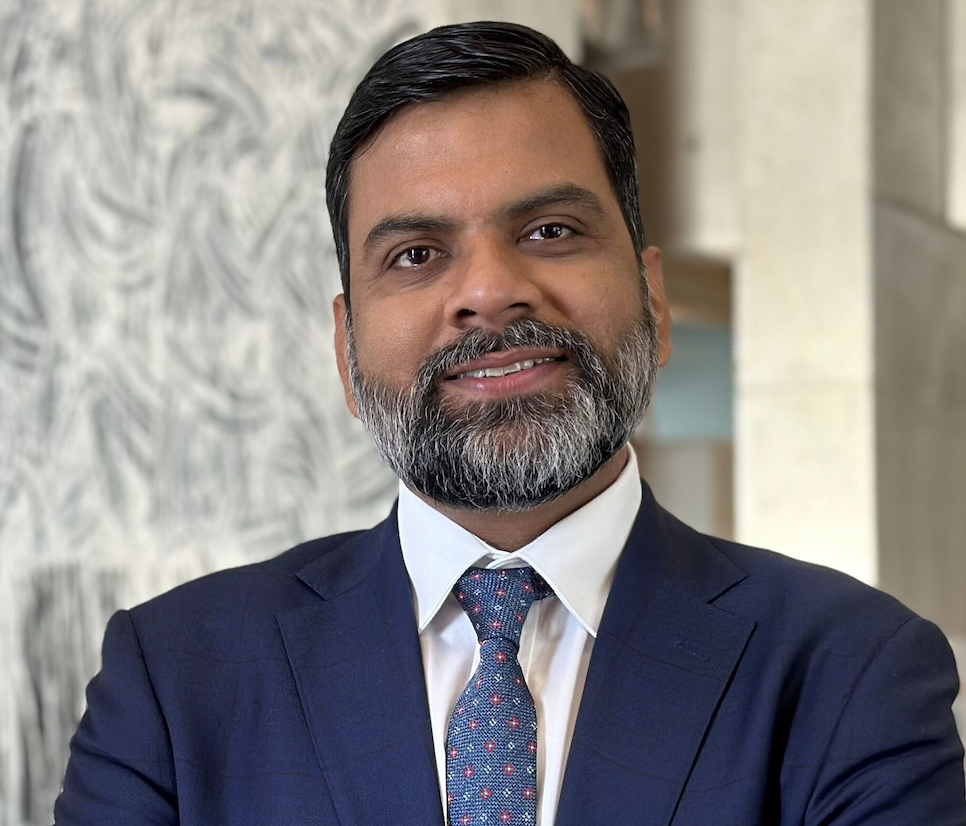
Keywords
Biography
Associate Professor Ankur Sharma is a laboratory head at the Garvan Institute of Medical Research. He is known for discovering the Oncofetal ecosystem in liver cancer and for his expertise in single-cell genomics and spatial transcriptomics. Dr. Sharma earned his PhD from the Indian Institute of Science in 2014, where he received the Best PhD Thesis award. After a brief post-doctoral stint at Cincinnati Children's Hospital, he joined the...view more
Associate Professor Ankur Sharma is a laboratory head at the Garvan Institute of Medical Research. He is known for discovering the Oncofetal ecosystem in liver cancer and for his expertise in single-cell genomics and spatial transcriptomics. Dr. Sharma earned his PhD from the Indian Institute of Science in 2014, where he received the Best PhD Thesis award. After a brief post-doctoral stint at Cincinnati Children's Hospital, he joined the Genome Institute of Singapore's single-cell and spatial genomics division. His work in this field was well-recognized, and he received several awards, including the GIS Outstanding Clinical Partnership Award, the Conquer Cancer ASCO Foundation Merit Award, the University of British Columbia Co-op Supervisor Recognition Award, and the 10x Genomics Clinical Translation Research Network. In 2021, Dr Sharma established his laboratory at the Harry Perkins Institute of Medical Research in Perth, where he worked on the clinical translation of oncofetal cells as biomarkers and therapeutic targets in liver cancer. In 2024, he was recruited to the Garvan Institute of Medical Research in the Translational Genomics program, where he collaborates extensively with liver cancer clinicians across Australia and the APAC region. Ankur has published work in Cell, Nature Cancer, Science, Immunity, and Nature Reviews Cancer. After seven years of laboratory-based research, this work has led to a phase IIb clinical trial (DEFINERx050) to evaluate oncofetal cells as a biomarker of immunotherapy response in liver cancer. Ankur's work is supported by funding from NHMRC (Ideas, Clinical trial and cohort), MRFF (EMCR), CSL Centenary Fellowship, philanthropy and Industry partners.
My Grants
NHMRC Clinical Trials and Cohort Grant 2024-2029, $5,947,688.00 CI-B Ankur Sharma, Precision Medicine in Liver Cancer a National Consortium for Spatial and molecular Phenotyping of HCC.
CSL Centenary Fellowship 2024-2029, $1,249,905 CI-A Ankur Sharma, Understanding the embryonic origins of cancer
MRFF EMCR Grant 2023-2026, $2,350,700.00 CI-A Ankur Sharma, TRACKERx: Biomarkers to predicting relapse in early-stage hepatocellular carcinoma
NHMRC Ideas Grant, APP2010795, 2022-2025, $1,195,455.00, CI-A Ankur Sharma, Oncofetal Ecosystem in advanced hepatocellular carcinoma: Implications for identifying Immunotherapy response.
My Qualifications
Ph.D., 2014, Indian Institute of Science (IISc), Bangalore
My Awards
2024 CSL Centenary Fellowship
2024 Snow Medical Fellowship (finalist)
2023 USyd Horizon Fellowship (declined)
2023 Sylvia and Charles Viertel Charitable Foundation Finalist (declined)
2023 Invited member for VinFuture Prize selection panel
2022 STOmics International Committee member
2021 10x Genomics CTRN gold level member
2020 University of British Columbia co-op Supervisor recognition Award
2019 Conquer Cancer® The ASCO Foundation Merit Award 2019
2019 GIS Outstanding Clinical Partnership Award
2015 Best Question award at CCHMC developmental biology annual retreat
2014 Best PhD thesis, Indian Institute of Science
2013 International Society of Stem Cell Research travel grant
2010 CSIR-UGC (NET) Award of Eligibility for Senior Research Fellowship
2008 CSIR-UGC (NET) Award of Eligibility for Junior Research Fellowship
My Research Activities
One of the persistent challenges in cancer research is the vexing problem of immune evasion. We know that malignant cells escape our body’s natural protective immune response – but how do they do it?
A key to answering this question may be the intriguing fact that malignant cells behave like stem cells in a developing foetus. Both types of cells quickly grow and proliferate, rapidly changing their cellular programming and evading the body’s immune response: a feat not performed by any other healthy cells. But what makes cellular reprogramming possible in malignant and foetal cells?
Our research starts to answer this question by shifting our gaze away from the malignant cells themselves and toward the unique environment in which they thrive. We discovered that cells in the tumour microenvironment (TME) – the tumour-supporting cells, such as those in the blood vessels that bring nutrients to growing tumours – showed the same signs of foetal-like cellular reprogramming as the malignant cells themselves. Further, we observed that two types of foetal-like (blood vessel and immune) cells re-emerged in the TME (Sharma et al., Cell 2020), suggesting that the TME acts like a fertile ‘soil’ in which the malignant tumour ‘seed’ can grow. We have coined the term oncofoetal ecosystem (Sharma et al., Cell 2020 and Sharma et al., Nat. Rev. Can. 2022) to describe this phenomenon, which shields malignant cells from the body’s normal immune response. Recently, we have identified a third type of foetal-like cell in the TME – this one a fibroblast – and underscored its potential role in liver cancer patient’s response to immunotherapy (Ziyi et al., Nature Cancer 2024).
By understanding the striking parallels between foetal development and cancer cell behaviour, we have formulated a hypothesis that both regenerative tissues and tumours reprogram their microenvironment to a “foetal-like” state that suppresses the immune system and promotes cellular proliferation. This novel understanding paves the way for exciting new directions in both cancer research and regenerative medicine. By anticipating the presence of “foetal-like” cells, we can enhance the efficacy of immunotherapy and devise diagnostic and therapeutic strategies that exploit foetal-like reprogramming. These ground-breaking insights into oncofoetal cell reprogramming hold immense potential to revolutionize our understanding of cancer development and progression and to shape the future of immunotherapy.
My Research Supervision
Supervision keywords
Areas of supervision
Cancer Genomics, Immunotherapy, Liver Cancer, Precision Medicine, Machine Learning